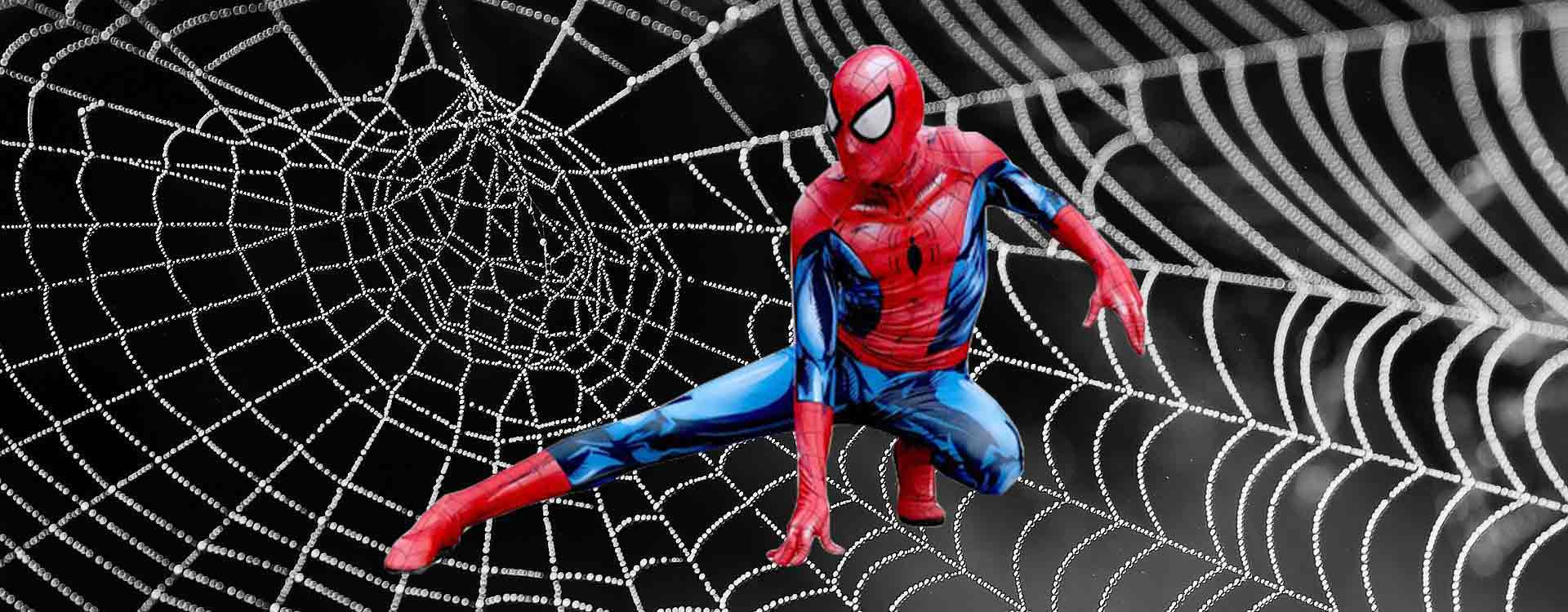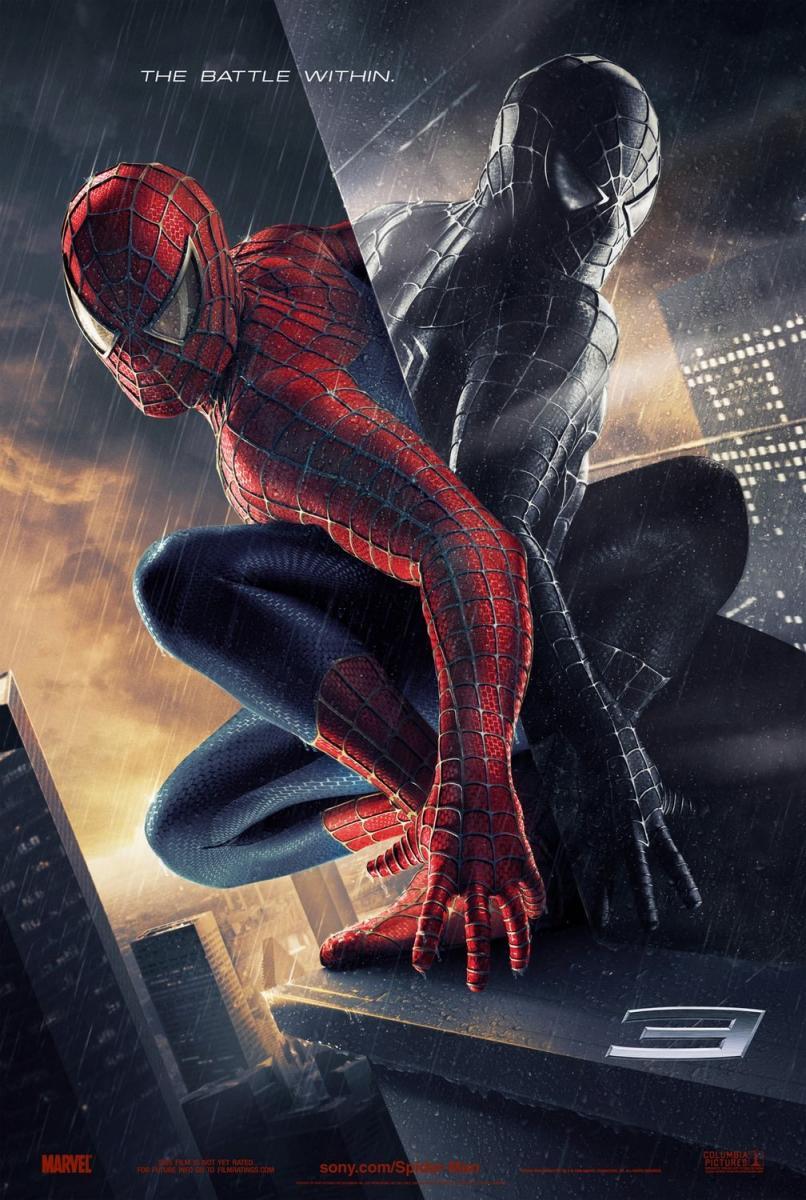Spider-Man: The Enduring Legacy of a Superhero Icon
 Spider-Man, one of Marvel Comics' most iconic superheroes, has captured the hearts and imaginations of fans around the world since his debut in 1962. Created by writer Stan Lee and artist Steve Ditko, Spider-Man is the alter ego of Peter Parker, a high school student who gains superhuman abilities after being bitten by a radioactive spider. With his combination of relatable character traits, compelling storylines, and dynamic powers, Spider-Man has become a cultural phenomenon, transcending the realm of comic books to leave an indelible mark on popular culture. In this exploration, we delve into the enduring legacy of Spider-Man and examine the factors that have contributed to his lasting appeal.
Spider-Man, one of Marvel Comics' most iconic superheroes, has captured the hearts and imaginations of fans around the world since his debut in 1962. Created by writer Stan Lee and artist Steve Ditko, Spider-Man is the alter ego of Peter Parker, a high school student who gains superhuman abilities after being bitten by a radioactive spider. With his combination of relatable character traits, compelling storylines, and dynamic powers, Spider-Man has become a cultural phenomenon, transcending the realm of comic books to leave an indelible mark on popular culture. In this exploration, we delve into the enduring legacy of Spider-Man and examine the factors that have contributed to his lasting appeal.
The Origin Story: With Great Power Comes Great Responsibility
Spider-Man's origin story is one of the most iconic and universally recognized in comic book history. The tale of Peter Parker, a shy and nerdy teenager who gains incredible powers, resonates with readers of all ages. After being bitten by a radioactive spider during a science demonstration, Peter discovers that he has gained superhuman strength, agility, and the ability to cling to walls. Initially, he uses his newfound abilities for personal gain, entering wrestling contests to earn money. However, tragedy strikes when Peter fails to stop a thief, and his beloved Uncle Ben is killed as a result. It is in the aftermath of this loss that Peter learns the famous lesson that would come to define his character: "With great power comes great responsibility." This mantra encapsulates the core ethos of Spider-Man—a sense of duty and moral obligation to use his powers for the greater good. Unlike other superheroes who are endowed with their abilities through external means, such as alien technology or cosmic forces, Peter Parker's transformation into Spider-Man is rooted in a relatable human experience. His struggles with guilt, self-doubt, and the burden of responsibility make him a deeply compelling and empathetic character.
This mantra encapsulates the core ethos of Spider-Man—a sense of duty and moral obligation to use his powers for the greater good. Unlike other superheroes who are endowed with their abilities through external means, such as alien technology or cosmic forces, Peter Parker's transformation into Spider-Man is rooted in a relatable human experience. His struggles with guilt, self-doubt, and the burden of responsibility make him a deeply compelling and empathetic character.
A Hero for Everyman
What sets Spider-Man apart from other superheroes is his relatability. Unlike the wealthy playboy Tony Stark or the alien god Thor, Peter Parker is an ordinary teenager grappling with everyday challenges such as schoolwork, relationships, and financial struggles. He faces many of the same issues that readers encounter in their own lives, making him a character that fans can readily identify with and root for. Peter's alter ego, Spider-Man, also embodies the classic theme of the underdog overcoming adversity. Despite his incredible powers, Spider-Man is often depicted as an outcast and a misunderstood figure, facing opposition from both villains and the authorities. His struggles to balance his dual identity and juggle his responsibilities as a superhero and a student resonate with readers who have felt like outsiders or struggled to find their place in the world.
Peter's alter ego, Spider-Man, also embodies the classic theme of the underdog overcoming adversity. Despite his incredible powers, Spider-Man is often depicted as an outcast and a misunderstood figure, facing opposition from both villains and the authorities. His struggles to balance his dual identity and juggle his responsibilities as a superhero and a student resonate with readers who have felt like outsiders or struggled to find their place in the world.
Moreover, Spider-Man's rogues' gallery of villains is among the most colorful and iconic in comic book history. From the sinister Green Goblin to the tragic Doctor Octopus, Spider-Man's foes mirror his own inner conflicts and provide compelling adversaries for him to overcome. The dynamic between Spider-Man and his adversaries is characterized by moral complexity and psychological depth, elevating their conflicts beyond mere physical battles.
Cultural Impact and Influence
Spider-Man's impact on popular culture extends far beyond the realm of comic books. Since his debut, Spider-Man has been featured in numerous television shows, movies, video games, and merchandise, cementing his status as a global icon. The character's enduring appeal has transcended generations, with each new iteration introducing Spider-Man to a new audience while retaining the core elements that have made him a beloved figure for over half a century.
The success of the Spider-Man franchise has also paved the way for greater diversity and representation in superhero storytelling. In 2011, Marvel Comics introduced Miles Morales, a biracial teenager of African American and Puerto Rican descent who takes up the mantle of Spider-Man in an alternate universe. Miles' introduction was met with widespread acclaim and signaled a shift toward greater inclusivity in the superhero genre. Spider-Man's influence can also be seen in the broader cultural landscape, with references to the character appearing in music, literature, and art. His iconic costume, with its red and blue color scheme and distinctive spider emblem, has become instantly recognizable worldwide. Moreover, Spider-Man's enduring popularity has inspired countless fans to create their own art, stories, and interpretations of the character, further enriching his cultural legacy.
Spider-Man's influence can also be seen in the broader cultural landscape, with references to the character appearing in music, literature, and art. His iconic costume, with its red and blue color scheme and distinctive spider emblem, has become instantly recognizable worldwide. Moreover, Spider-Man's enduring popularity has inspired countless fans to create their own art, stories, and interpretations of the character, further enriching his cultural legacy.
Evolution of Spider-Man in Popular Media Spider-Man's journey from the pages of comic books to other forms of media has been nothing short of spectacular. Throughout the decades, he has swung his way into television screens, movie theaters, and video game consoles, captivating audiences with his thrilling adventures and relatable struggles.
Spider-Man's journey from the pages of comic books to other forms of media has been nothing short of spectacular. Throughout the decades, he has swung his way into television screens, movie theaters, and video game consoles, captivating audiences with his thrilling adventures and relatable struggles.
In the realm of television, Spider-Man made his animated debut in the 1967 series "Spider-Man," which introduced a generation of viewers to the character's iconic theme song and catchphrases. Subsequent animated adaptations, including "Spider-Man and His Amazing Friends" and "Spider-Man: The Animated Series," further solidified the character's popularity and expanded his mythos.
In 2002, director Sam Raimi brought Spider-Man to the big screen in a blockbuster film adaptation starring Tobey Maguire as Peter Parker. The film was a critical and commercial success, spawning two sequels and paving the way for a new era of superhero movies. The success of the "Spider-Man" trilogy demonstrated the enduring appeal of the character and set the stage for future cinematic adaptations. In 2012, director Marc Webb rebooted the "Spider-Man" film franchise with "The Amazing Spider-Man," starring Andrew Garfield as Peter Parker. The film introduced a new interpretation of the character's origin story and explored darker themes of identity and loss. While the reboot received mixed reviews, it paved the way for the introduction of new characters and storylines in subsequent films.
In 2012, director Marc Webb rebooted the "Spider-Man" film franchise with "The Amazing Spider-Man," starring Andrew Garfield as Peter Parker. The film introduced a new interpretation of the character's origin story and explored darker themes of identity and loss. While the reboot received mixed reviews, it paved the way for the introduction of new characters and storylines in subsequent films.
In 2016, Spider-Man made his long-awaited debut in the Marvel Cinematic Universe (MCU) with "Captain America: Civil War," portrayed by actor Tom Holland. Holland's portrayal of the character was met with widespread acclaim, capturing the youthful energy and wit of Peter Parker while also showcasing his growth as a hero. Spider-Man's inclusion in the MCU opened up new storytelling possibilities and established him as a key player in the Marvel universe.
The success of Spider-Man's cinematic adventures has also translated to the realm of video games, with several critically acclaimed titles featuring the web-slinger. From the groundbreaking "Spider-Man" game for the PlayStation in 2000 to the highly anticipated "Marvel's Spider-Man" for the PlayStation 4 in 2018, gamers have been able to step into the shoes of Spider-Man and swing through the streets of New York City in immersive open-world experiences.
Conclusion Spider-Man's journey from a humble comic book character to a global cultural icon is a testament to the enduring power of storytelling and the universal appeal of heroes. With his relatable character traits, compelling origin story, and dynamic adventures, Spider-Man has captured the hearts and imaginations of fans around the world for over six decades. Whether swinging through the streets of New York City or grappling with the challenges of everyday life as Peter Parker, Spider-Man continues to inspire audiences with his message of courage, responsibility, and resilience. As he embarks on new adventures and faces new challenges, Spider-Man remains a timeless symbol of hope, justice, and the enduring human spirit.
Spider-Man's journey from a humble comic book character to a global cultural icon is a testament to the enduring power of storytelling and the universal appeal of heroes. With his relatable character traits, compelling origin story, and dynamic adventures, Spider-Man has captured the hearts and imaginations of fans around the world for over six decades. Whether swinging through the streets of New York City or grappling with the challenges of everyday life as Peter Parker, Spider-Man continues to inspire audiences with his message of courage, responsibility, and resilience. As he embarks on new adventures and faces new challenges, Spider-Man remains a timeless symbol of hope, justice, and the enduring human spirit.






































